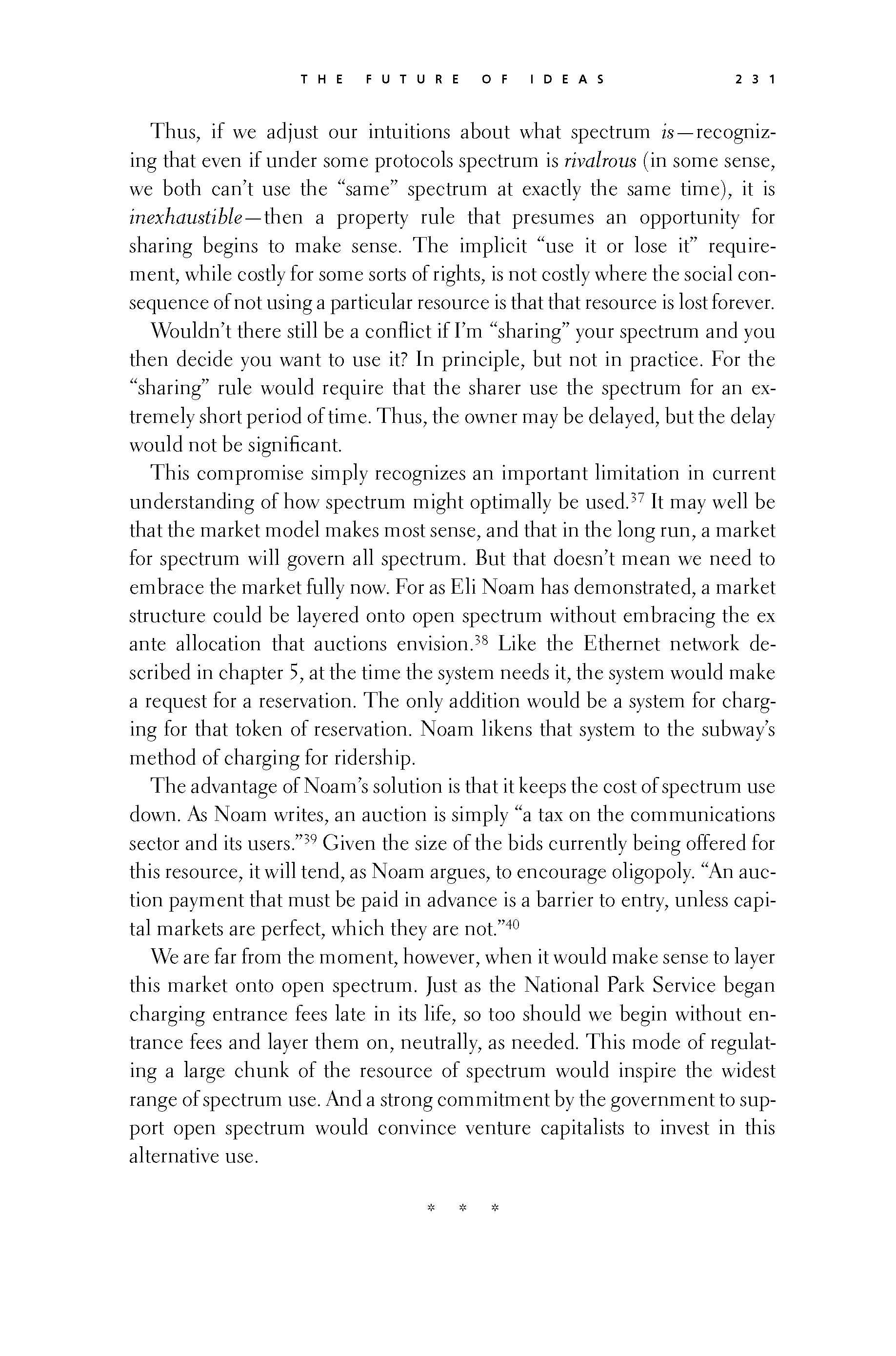 p230 _
-chap- _
toc-1 _
p231w _
toc-2 _
+chap+ _
p232
p230 _
-chap- _
toc-1 _
p231w _
toc-2 _
+chap+ _
p232
Thus, if we adjust our intuitions about what spectrum _is_ -- recogniz-
ing that even if under some protocols spectrum is _rivalrous_ (in some sense,
we both can't use the "same" spectrum at exactly the same time), it is
_inexhaustible_ -- then a property rule that presumes an opportunity for
sharing begins to make sense. The implicit "use it or lose it" require-
ment, while costly for some sorts of rights, is not costly where the social con-
sequence of not using a particular resource is that that resource is lost forever.
Wouldn't there still be a conflict if I'm "sharing" your spectrum and you
then decide you want to use it? In principle, but not in practice. For the
"sharing" rule would require that the sharer use the spectrum for an ex-
tremely short period of time. Thus, the owner may be delayed, but the delay
would not be significant.
This compromise simply recognizes an important limitation in current
understanding of how spectrum might optimally be used.[12-37] It may well be
that the market model makes most sense, and that in the long run, a market
for spectrum will govern all spectrum. But that doesn't mean we need to
embrace the market fully now. For as Eli Noam has demonstrated, a market
structure could be layered onto open spectrum without embracing the ex
ante allocation that auctions envision.[12-38] Like the Ethernet network de-
scribed in Chapter 5, at the time the system needs it, the system would make
a request for a reservation. The only addition would be a system for charg-
ing for that token of reservation. Noam likens that system to the subway's
method of charging for ridership.
The advantage of Noam's solution is that it keeps the cost of spectrum use
down. As Noam writes, an auction is simply "a tax on the communications
sector and its users."[12-39] Given the size of the bids currently being offered for
this resource, it will tend, as Noam argues, to encourage oligopoly. "An auc-
tion payment that must be paid in advance is a barrier to entry, unless capi-
tal markets are perfect, which they are not."[12-40]
We are far from the moment, however, when it would make sense to layer
this market onto open spectrum. Just as the National Park Service began
charging entrance fees late in its life, so too should we begin without en-
trance fees and layer them on, neutrally, as needed. This mode of regulat-
ing a large chunk of the resource of spectrum would inspire the widest
range of spectrum use. And a strong commitment by the government to sup-
port open spectrum would convince venture capitalists to invest in this
alternative use.
***
[[231]]
p230 _
-chap- _
toc-1 _
p231w _
toc-2 _
+chap+ _
p232